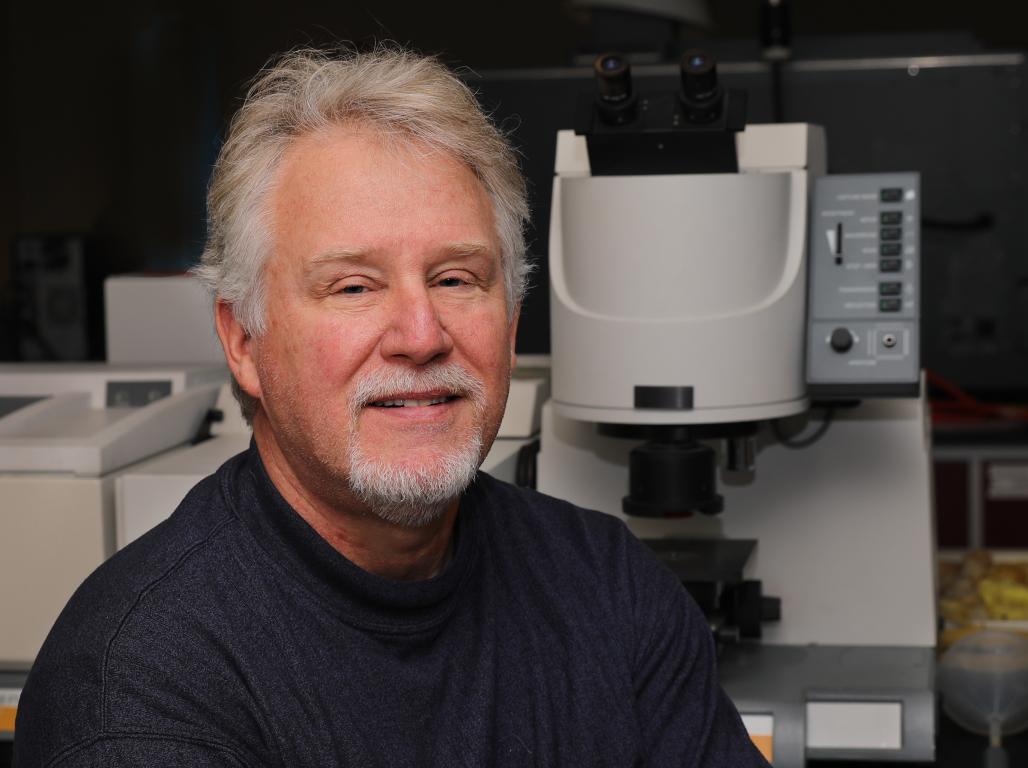
York College of Pennsylvania is a teaching institution, committed to serving the evolving educational needs of students. Faculty focus on their work in the classroom, making connections with and engaging students through high-impact practices and innovation. In this series, faculty tell us what compels them to teach, and why they teach at York College.
Dr. Carla Strassle is a Professor of Psychology, the Director of Experiential Learning, Internships, and Practica in the School of Behavioral Sciences and Education (SBSE) at York College, and the 2023 recipient of the Presidential Award for Excellence in Scholarship and Professional Activity. You can find her teaching a course focused on psychological disorders in YCP’s GenNext curriculum, as well as other courses at all levels of the curriculum for Psychology majors. She has a front-row seat as students go out into the workforce and put what they have learned into practice.
Why I Teach: The Perspective of a Trained Clinician
As a licensed clinical psychologist, my graduate training was full of learning how to help guide people to achieve the goals that brought them into therapy. In the therapy room, clinicians spend a lot of time engaging with clients using psychoeducation (i.e., teaching!) to address their life problems. Even if I had never stepped into the role of faculty, my days as a full-time clinician would be filled with teaching. So, you might ask, ‘Why not just practice? Why teach?’ There are two main reasons.
1. To Give It Away: Exposure To Important Concepts In My Field Can Benefit Everyone!
Clinicians do important work, but the nature of that work is often one client at a time in a reactive intervention once a disorder has developed. A wider focus would consider how to relay similar knowledge on a broader scale. What is a common way to get information out to lots of people? You guessed it: teaching! I teach a class about critical thinking and the common missteps we make in thinking. This is one way that I have been able to bring useful knowledge from my field to everyone, regardless of their intended career path.
A second instance of bringing important knowledge to everyone comes through active teaching about the stigma of psychological disorders. Stigma happens when people are treated negatively because of having a disorder. Put simply, stigma is harmful, not only to the person with the disorder but to society as a whole. Research indicates that stigma is one of the barriers to people seeking treatment, which in turn fuels lost employment opportunities and increased involvement with the criminal justice system. Worldwide, the consequences of psychological disorders have similar economic and health impacts on society as the most impactful physiological disease (cardiovascular disorders). Directly addressing stigma is one part of a multifaceted approach to addressing psychological disorders, so how can we get the word out about the negative impact of stigma on our society? Again, teaching! Some alumni will go on to directly work with people who have psychological disorders; others will work in related professions that commonly come into contact with that population; and alumni will also have jobs that do not ostensibly connect to psychological disorders, yet can have an impact on how disorders are perceived by society as a whole. I view my role as a teacher as skipping a stone across still water. There is only one of me; I will never be that nurse, police officer, graphic designer, or marketing executive—but if I can raise awareness of the important issues in my field, my students can act as ripples in the water, spreading that knowledge beyond the classroom to benefit society more broadly.
2. To Prepare The Next Generation: Training Future Human Service Professionals Starts At The Undergraduate Level.
Faculty members typically have terminal degrees and can teach in a variety of educational settings. The ‘pinnacle’ of academic institutions is often considered the research-based flagship university where faculty members tend to be most closely involved with their graduate students. While graduate-level education is essential to producing trained clinicians in the workforce, faculty at the undergraduate level serve a different purpose. At the undergraduate level, our job is both to ‘set the stage’ for careers in the field by highlighting the big-picture issues and challenges that the field faces and to set that learning in motion by introducing the concepts and the skills that will be needed for the field. Beyond basic critical thinking and stigma reduction, I spend my teaching time focused on the application of diagnostic and treatment knowledge in upper-level Psychology classes. This work is predicated on critical thinking, and also requires students to practice the career competencies expected of them post-college. When students finish my classes, they have not been passive recipients of information, but rather active participants who can articulate not only what to do, but why it makes sense to do it for a specific client with a specific set of symptoms.
Teaching allows me to take the knowledge of my field and make it available more broadly, for everyone and for the benefit of the next group of clinicians. Put simply: I love teaching! There is nothing better than seeing a student have that “aha!” moment of understanding, and then seeing them be able to take that conceptual understanding and use it.
So that’s why I teach, but that’s not the end of the story. Why did I end up here?
York College is a teaching institution. It is intentionally set up to allow for small class sizes. That allows us to design our classes to foster ongoing interactions and truly get to know our students. The ability to build that relationship allows us, as faculty, to scaffold the learning and continuously challenge our students in their knowledge and skill development so they are ready to take their next step post-graduation.




